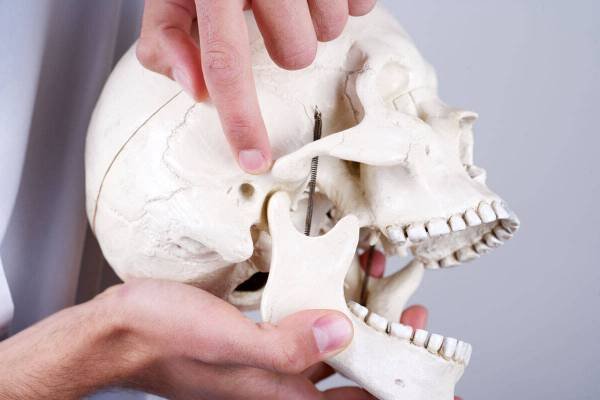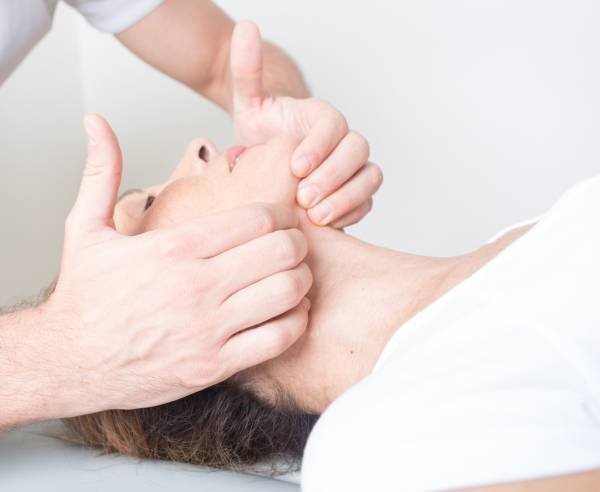ReasonJaw ClickingWhen Chewing, Eating, and Yawning
Many people notice a sound when opening or closing their mouths. This noise might be loud during eating or talking, potentially leading to embarrassment.
If you experience jaw clicking when opening your mouth and feel pain, don’t worry; simply read this health and hygiene section.SelMagzto learn about the causes of jaw clicking while eating and yawning.
Jaw Clicking While Eating
The cause of jaw clicking while eating is that tight muscles and tendons pull the jaw to one side, causing misalignment. The clicking sound originates from the strained jaw joint, which shifts slowly during chewing, eating, or yawning.

Causes of Jaw Clicking While Eating and Chewing
Where Does the Jaw Sound Come From?
Some individuals hear noises from their jaws while eating or speaking, incorrectly attributing it to excessive talking or consuming hard foods.Burnt Ricewhich is not entirely accurate.
Jaw displacement causes clicking sounds. Many people have misaligned teeth, causing improper jaw movement when the upper and lower teeth connect, gradually wearing down the jaw surface. This wear results in the condyle of the lower jaw slipping over the upper jaw, leading to clicking.

Jaw Displacement as a Cause of Jaw Clicking
Treatment for Jaw Clicking
For TreatmentJaw ClickingConsider it from childhood
Jaw clicking problems often begin in childhood. Crooked teeth and poor eating habits, particularly chewing on one side, contribute to clicking in the temporomandibular joint.
Thus, parents should ensure their child’s baby teeth are cared for, addressing any decay to promote proper alignment in adulthood.Removing Baby Teethgreatly increases the risk of their permanent teeth growing unevenly.
Parents should regularly take their children for check-ups and necessary treatments to prevent temporomandibular joint issues.

Preventing Temporomandibular Joint Clicking in Childhood
Take the first step to addressJaw Clickingif you are affected
If you experience temporomandibular joint issues, it’s important to see a dentist promptly for treatment, correction, and resolution of dental issues. Treatment options may include restorative procedures,orthodontics,prosthetics, etc., and are tailored for each person. Additionally, individuals with this issue should use both sides of their jaw while eating, take small bites, avoid overly wide openings of the mouth, and yawn slightly open to prevent further damage to the jaw joint surface.
Jaw ClickingWhen it Dislocates
Consider jaw dislocation before jaw surgery due to the worsening of this problem. The jaw may dislocate occasionally when speaking, requiring the person to reposition it. Misalignment and related sounds hinder food enjoyment, making timely treatment crucial.

Treatment for Jaw Dislocation
How to Identify Jaw Clicking?Sometimes this condition starts early, and some individuals are unaware, not yet hearing any clicking sounds. It’s advisable to consult a dentist for diagnosis; if treatment is avoided, the clicking may worsen during eating.
To diagnose this condition, have someone stand in front of you and place their finger on your temporomandibular joint as you softly open your mouth. If the joint is healthy, your mouth will open straight; otherwise, it may shift in various directions. Moreover, this
could result in surgery
Surgery is necessary only if the temporomandibular joint problem is diagnosed late and has advanced significantly. Early diagnosis and treatment can reduce complications for the individual. Surgical type is based on damage extent, and multiple approaches are available. Sometimes, this might involve shortening the joint or repairing damaged areas.
Post-surgery, the jaw and face are immobilized for 6 weeks, followed by the patient undergoing physical therapy. If surgery is your last resort, ensure the physician is highly qualified; lack of skill could lead to facial paralysis or jaw misalignment.
Jaw Surgery for Treating Temporomandibular Joint Problems

Relation
Ear Painand Jaw PainProgressing temporomandibular joint issues can cause ear pain; when the lower jaw moves upward, it positions the condyle backward, affecting the corda tympani nerve and leading to earaches.
Jaw Clicking







